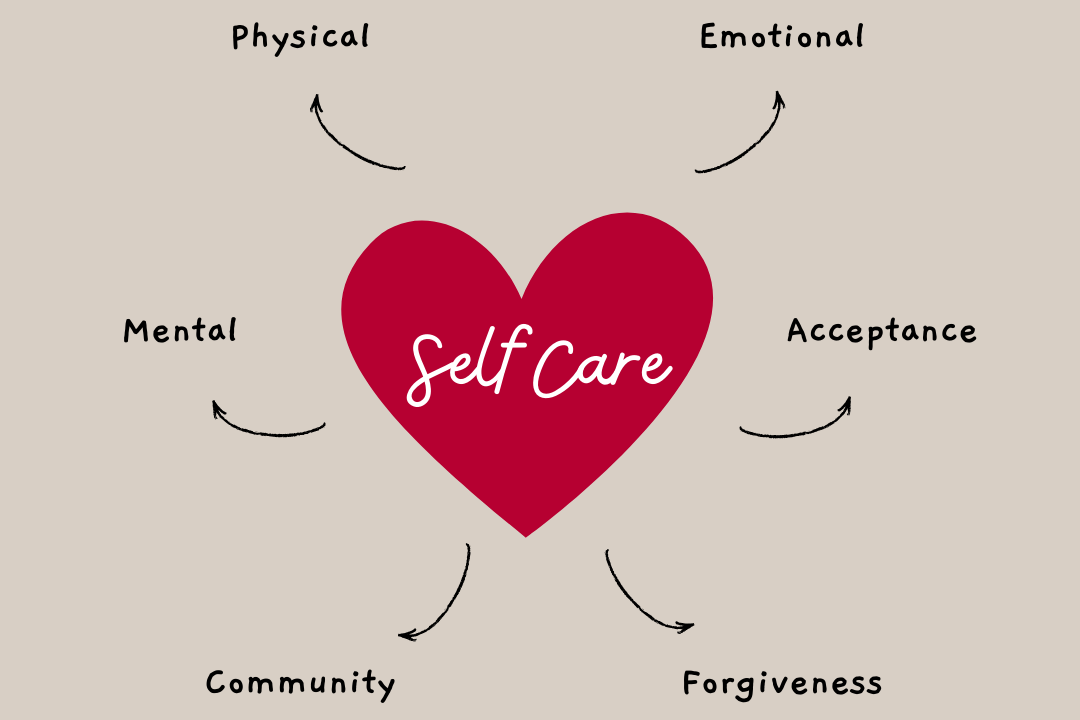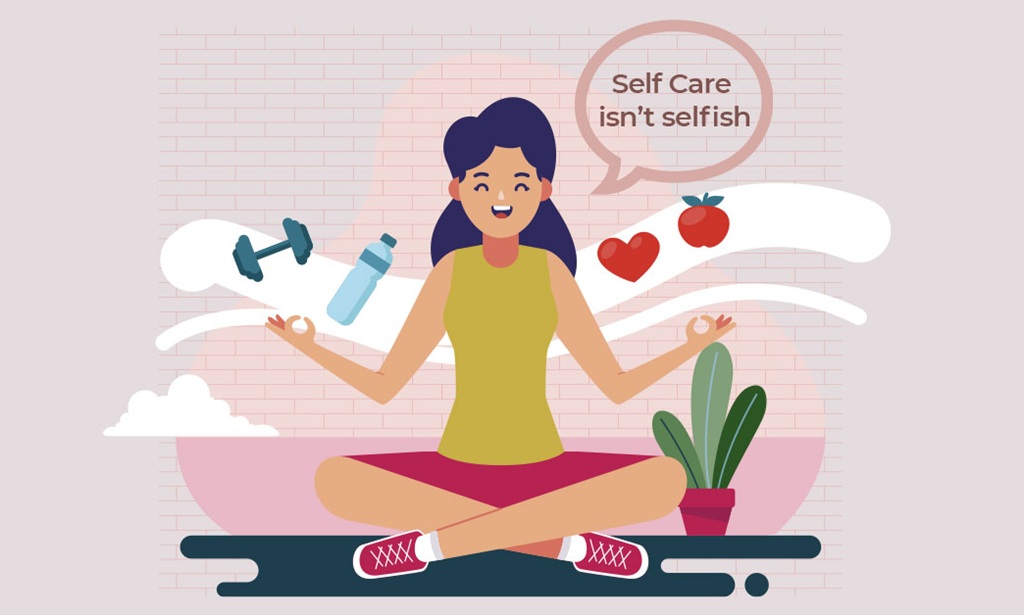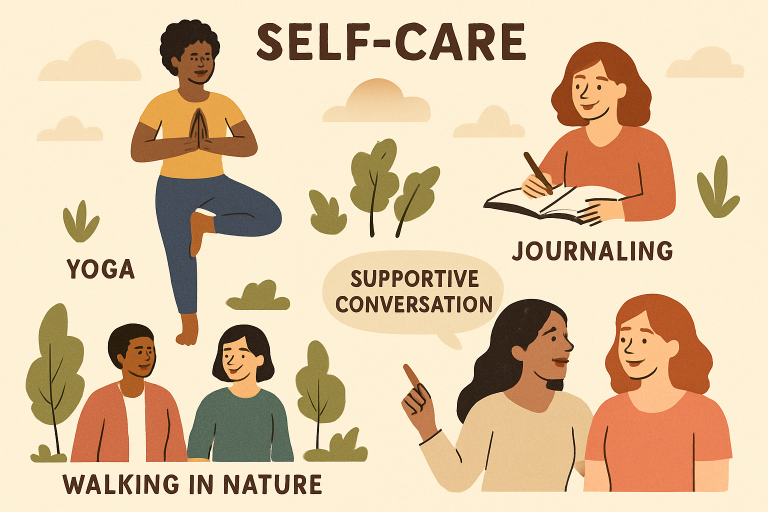Women navigating recovery from addiction face a multitude of unique challenges, ranging from societal expectations to deeply personal hurdles. Integrating intentional self-care strategies is essential to sustaining long-term sobriety and cultivating well-being.
To get more information about recovery resources and specialized support, explore reputable organizations and programs that offer tailored assistance for women in recovery. Taking a proactive approach empowers each woman to reclaim her life and establish a foundation for lasting change.
Self-care isn’t simply about indulgence; it’s a holistic commitment to personal wellness. Regular self-care routines can help mitigate stress, foster resilience, and promote healing. Approaching recovery with a toolkit of proven strategies strengthens mental and physical health and supports a sense of purpose and connection.
Engage in Regular Physical Activity
Exercise is a powerful tool for women in recovery. Physical activity, whether yoga, walking, swimming, or dancing, can elevate mood by stimulating endorphin production. Regular movement acts as a natural stress reliever, helps manage anxiety and depression, and contributes to better quality sleep. Committing to a consistent workout schedule, even in brief daily sessions, can amplify feelings of accomplishment and build confidence during recovery.

Movement-based practices like yoga are especially helpful because they unify body and mind, teaching present-moment awareness and deep relaxation. According to Healthline, yoga is shown to reduce anxiety and promote mental wellness, making it an effective pillar of self-care for those overcoming addiction.
Practice Mindfulness and Meditation
Mindfulness, the practice of paying deliberate attention to the present moment, has a transformative effect on recovery. Daily mindfulness routines, such as meditation or focused breathing exercises, allow women to process difficult emotions, reduce stress, and become more attuned to their inner experiences. This awareness can minimize the grip of cravings or negative thought loops that threaten sobriety.
Meditation doesn’t need to be complex guided sessions; gratitude journaling, or even mindful walks in nature can provide grounding benefits. Studies from the American Psychological Association show that mindfulness practice can improve mood and reduce the risk of relapse by enhancing self-control and emotional regulation.
Explore Creative Outlets
Creativity plays a significant role in recovery by allowing the safe expression of emotions and offering a sense of achievement. Women in recovery often find therapeutic value in activities like painting, music, journaling, or crafts. These outlets offer a constructive way to process experiences, foster self-discovery, and develop new passions or hobbies that contribute to a fulfilling life.

Set Healthy Boundaries
Setting and honouring boundaries is key to safeguarding emotional health in recovery. Learning to articulate needs, say “no” to potentially harmful situations, and maintain personal space can protect against burnout and prevent relapse. Boundaries are a testament to self-respect. They enable women to surround themselves with positive influences and make choices that align with their recovery goals.
Build a Supportive Community
Recovery is rarely a journey taken alone. Building a network of understanding peers through support groups or community organizations provides encouragement, accountability, and a sense of belonging. Whether in-person or online, these relationships create a vital safety net during times of crisis or doubt. Support networks may include recovery meetings, family, friends, or even mentorship from those who have walked a similar path.
Prioritize Nutrition and Sleep
Proper nutrition and rest form the backbone of a robust recovery. Balanced eating habits restore vital nutrients depleted by addiction and fuel ongoing healing of both body and brain. Maintaining regular sleep routines helps regulate emotions, sharpens decision-making, and fortifies mental resilience. Consistency in these areas supports energy, immune function, and the stability needed to weather recovery’s ups and downs.
Seek Professional Support
Therapy offers invaluable guidance during the recovery process. Working with addiction-focused therapists or counsellors enables women to explore underlying issues, receive guidance for coping with triggers, and craft strategies for long-term success. Therapeutic support is especially critical for managing co-occurring mental health concerns and developing personalized action plans for sustained well-being.
Embrace Self-Compassion
Recovery often comes with setbacks and moments of self-doubt. Cultivating self-compassion means responding to oneself with kindness instead of criticism, especially during tough times. By acknowledging that mistakes are a natural part of growth, women in recovery can foster resilience, continue moving forward, and build a healthier relationship with themselves. Practicing self-compassion encourages healing, adaptability, and hope for the future.
Incorporating these self-care strategies empowers women to approach recovery with courage and confidence. Prioritizing holistic wellness becomes an act of reclaiming agency and building the foundation for a rewarding, balanced life. For those seeking extensive support or individualized recovery programs, more information is readily available through specialized recovery centers and trusted organizations.
Key Takeaways
- Regular physical activity enhances mood and physical health.
- Mindfulness practices reduce stress and increase self-awareness.
- Creative outlets provide therapeutic benefits and boost self-esteem.
- Setting boundaries protects emotional well-being.
- Building a supportive community fosters a sense of belonging.
Related News:
Mental Health Experts in Thailand Raise Flags Over the Rising Suicide Rate
Finding Balance: Building a Healthier Lifestyle Through Small Changes














